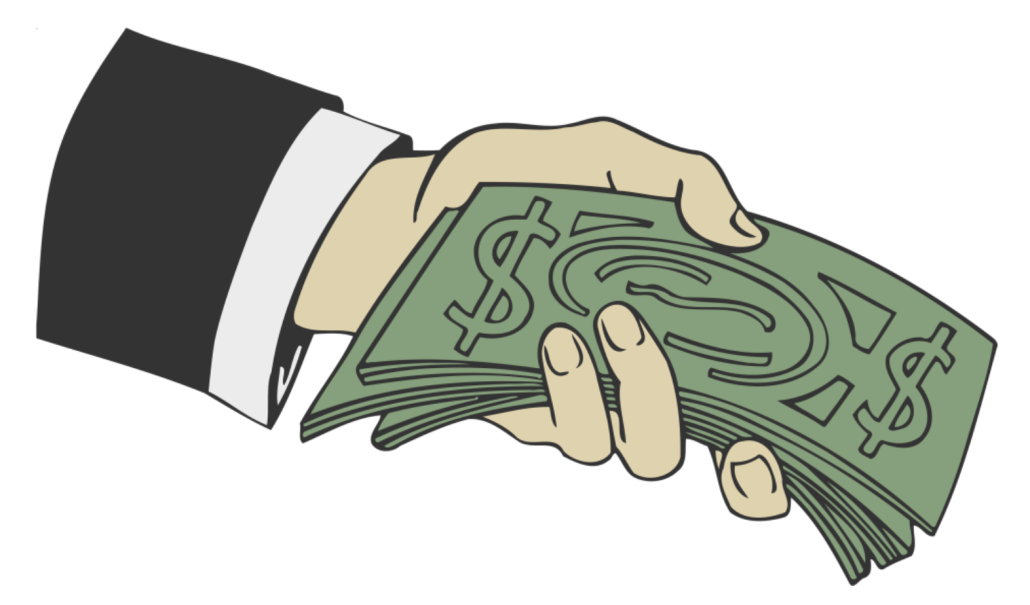Maybe money can buy happiness

“Money can’t buy happiness” is a phrase as ubiquitous as any other. Jessie J said it herself in her hit song with B.o.B. “Price Tag.” It’s not about the money, right?
Those who’ve been privileged enough to put their happiness over finances may not think twice about the idiom. But for those living paycheck to paycheck, it might be a different story. Maybe happiness is just being able to afford food for your family or school tuition for your kids.
Although the phrase itself dates back to the 1750s, ancient philosophers were the first to be critical of the idea that one’s happiness can be dependent on wealth and money. Throughout history, there have been many adaptations of what the intersectionality between income and joy may be. Chinese philosopher Lao-Tzu once stated, “If your happiness depends on money, you will never be happy with yourself.” In his book “Republic,” Plato explains, “The more they think of making a fortune the less they think of virtue; for when riches and virtue are placed together in the scales of the balance, the one always rises as the other falls.” Even Albert Einstein commented on the idiom saying, “Money only appeals to selfishness and irresistibly invites abuse.”
But how truthful are these claims? These great minds didn’t live in an age so enthralled with the idea of materialism, and they didn’t live in an economy where the top 1% of households own an incredibly disproportionate piece of a nation’s wealth. In America today, the bottom half of American families own 2% of the country’s wealth. What does happiness look like to over 168 million people?
“Money can’t buy happiness” assumes that everyone places the value of money above all else, especially the well-being and needs of those less well-off. There is an extreme consumer culture that has exploded within recent decades, especially with the accessibility of merchandise through online retail and social media, that inflates the idiom greatly. Maybe money itself won’t directly make those privileged enough to have it happy, but the commodities they can buy with that money may very well be the driving factor of a monetary obsession.
According to BBC Science Focus author Dean Burnett, the phrase has a much more complex meaning than we give it; “Money may be [recognized] by our brains as biologically significant, but there’s an upper limit on how much rewarding even biologically significant things can be,” Burnett writes. For every household, money is an important factor in living, regardless of economic status. For the rich, acquiring more money becomes a cyclical chase: get the bag and buy a useless item that adds no value, and repeat.
Consumerism has driven society to mega-mansion collecting and luxury car purchasing rather than contributing in a more meaningful way to the community — we know that. But it’s the other side of the coin that isn’t talked about enough. Where, in one household, money might be another excuse to buy another diamond necklace to try to cure emotional distress, in another, it might mean just having enough to buy your kid a toy to see their face light up. They are not the same.
Since the formation of the first official currency, money has been a means for survival. Before that, commodities were exchanged for necessities. By exclaiming that money and happiness cannot be equated, we are assuming that everyone doesn’t have to worry about money. As the gap between rich and poor grows with every passing day, it’s becoming harder and harder for those who are financially taken advantage of to come out of stress long enough to feel conventional joy.
In a perfect world, money and happiness wouldn’t be equivalent, but we don’t live in a perfect world. The gap between middle-, low- and high-income families is ever-increasing, and the imperfect nature of the phrase is a reflection on the imperfect nature of society’s treatment of those who have economically been repeatedly pushed to the sidelines.
Maybe money won’t buy happiness for CEOs and business moguls, but it very well could for someone trying to pay rent or feed their family.
